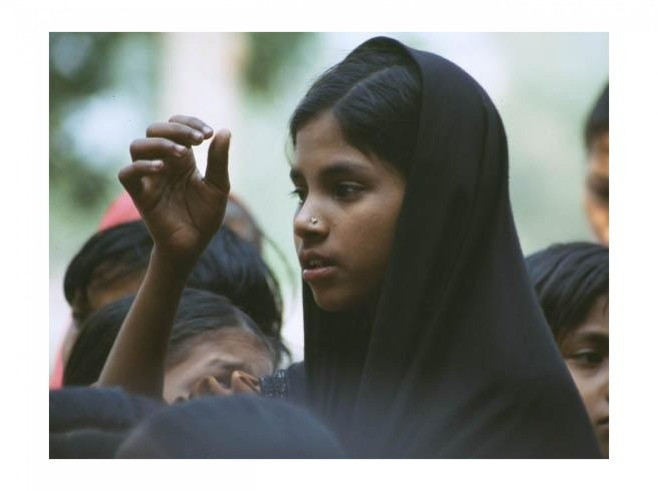Hindu Women Seek Right To Divorce In Overwhelmingly Muslim Bangladesh

Hindus in the overwhelmingly Muslim and impoverished nation of Bangladesh face a number of human rights issues, more than forty years after the formation of the state.
For example, Hindu women are forbidden from getting a divorce, from inheriting property from their families, or even having their marriages registered in the first place.
“Is it a crime to be born a Hindu girl?” a young Hindu woman named Rani told Agence France Presse (AFP).
“I can’t inherit any property. I can’t divorce my husband and remarry even though he left me for another woman and beat me all the time.”
While Bangladesh has a secular legal structure for most matters, things like marriage, divorce and inheritance are subject to religious dictums.
Nina Goswami, a civil rights attorney and member of the rights campaigner Ain O Salish Kendra, told AFP: “At the moment, when a Hindu man walks out on a marriage, the wife can’t sue him for alimony or maintenance because lack of marriage papers make it almost impossible to prove that they were married at all. Tens of thousands of Hindu men keep multiple wives, knowing that they can’t be prosecuted.”
However, some relief may be on the way.
In May, Bangladeshi Prime Minister Sheikh Hasina approved new legislation that will lead to the official registration of Hindu marriages. The law is expected to pass parliament soon.
Goswami, who is a Hindu herself, cautioned that the new law may simply amount to tokenism, citing that the law would appease Hindu women, while seeking not to antagonize Hindu men who tend to vote for the ruling Awami League party.
“Unfortunately, these [Hindu] women don’t exist in the government’s eyes and ears,” she said.
“To our politicians, the Hindu community is a big vote-bank, made up of only males.”
Ironically, it is hard-line Hindu males who oppose the law, some of whom practice polygamy in Bangladesh and often abandon their first wives without recompense. Religious Hindu men also cite that divorce is alien to their culture.
“We don’t mind optional registration because Hindu couples sometimes need the marriage certificate when they travel,” said Hiren Biswas, the president of the Samaj Sangskar Parishad, a right-wing Hindu organization.
“But we won’t accept mandatory registration, or divorce and inheritance rights to women because our scriptures and customs don’t allow them.”
Hindus are believed to account for about 10 percent of Bangladesh’s 152-million-strong population. At the time of partition in 1947, Hindus represented about 30 percent of the total population of the land that is now called Bangladesh (then called East Pakistan).
By 1951, due to outmigration and forced conversions to Islam, that figure fell to 22 percent; and eventually to 13.5 percent in 1974, three years after the independence war.
Aside from marriage and divorce issues, Hindus have also faced forcible conversions, land evictions, seizure of properties, attacks on temples, even rape and murder.
Taslima Nasrin, a Muslim feminist, had to flee Bangladesh in 1994 just after the publication of her novel “Lajja” (Shame) which detailed the persecution of Hindus, particularly Hindu women, in her native country. The book, which also criticized many Muslim practices, was banned in Bangladesh and led to death threats upon Nasrin.
© Copyright IBTimes 2025. All rights reserved.





















